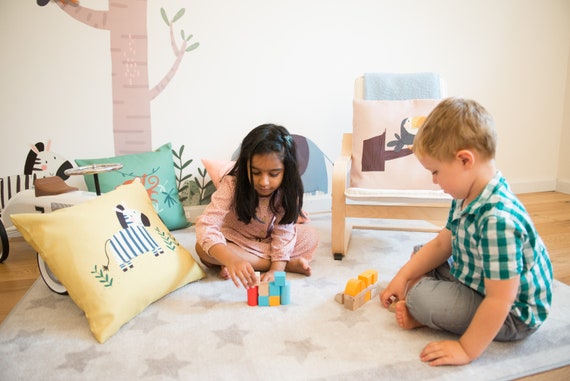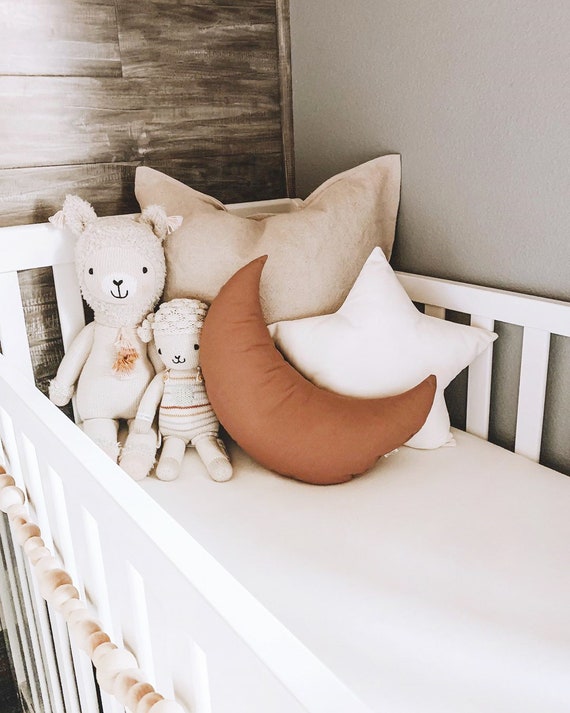Decorating a child’s room is a delightful journey! One of the simplest yet most impactful ways to add charm and personality to the space is through kids decorative pillows. As a parent, I’ve experienced firsthand how these little accents can transform an ordinary space into a cozy, inviting haven for your little one. In this guide, we’ll explore everything you need to know about choosing the right decorative pillows for kids, including styles, themes, materials, safety considerations, and more. So, dive in!
Why Kids Decorative Pillows Matter
Kids decorative pillows aren’t just for aesthetics. They serve multiple purposes that can enhance both the functionality and ambiance of your child’s room. Here are a few reasons why they matter:
- Comfort: Kids love to lounge on pillows while reading or playing.
- Cozy Factor: Pillows can make a room feel warm and inviting.
- Personal Expression: They offer a way for children to express their personalities and interests.
- Playful Decor: Fun designs and themes can stimulate creativity and imagination.
Types of Kids Decorative Pillows

Understanding the various types of decorative pillows available can help you make better choices. Below are popular types to consider:
1. Throw Pillows
Throw pillows are versatile and can be placed anywhere—from beds to bean bags. They come in various shapes, sizes, and colors.

2. Pillow Pets
Pillow pets combine fun and functionality, transforming from a plush toy into a pillow. They are especially popular among younger children.
3. Floor Cushions
These large, soft pillows can be used for seating or lounging on floors, making them perfect for playtime.

4. Decorative Bolster Pillows
Bolster pillows provide support and add an elegant touch. They’re great for beds and reading nooks.
5. Shaped Pillows
Pillows in unique shapes (like stars, animals, or hearts) are eye-catching and can serve as decorative pieces.

Choosing the Right Decorative Pillow for Kids
With so many options available, how do you choose the right decorative pillows for your child’s room? Here are several factors to consider:

1. Age Appropriateness
Consider your child’s age when selecting pillows. Younger kids may prefer fun, colorful designs, while older children might appreciate more sophisticated or themed options.
2. Material
Look for pillows made from durable, hypoallergenic materials. Organic cotton, polyester, or memory foam are popular choices that provide comfort and support.

3. Safety
Ensure the pillows are safe for children, with no small parts that can pose a choking hazard. Also, choose non-toxic materials to protect your child’s health.
4. Washability
Kids can be messy! Opt for pillows with removable and washable covers for easy maintenance.

5. Design and Theme
Incorporate your child’s interests by selecting pillows that reflect their favorite colors, animals, or characters. This personal touch can create a space they truly love.
Popular Themes for Kids Decorative Pillows
Themes can enhance the overall decor of a child’s room. Here are some popular themes you can explore:
1. Animal Kingdom
From cute cats to roaring lions, animal-themed pillows are always a hit with kids.
2. Fantasy Worlds
Pillows featuring unicorns, dragons, or fairies can add a whimsical touch.
3. Space Adventures
Designs with planets and stars appeal to budding astronauts and stargazers.
4. Sports Enthusiast
For sporty kids, pillows featuring their favorite teams or sports can make their rooms come alive.
5. Nature Themes
Floral and nature-themed pillows can create a calm and soothing atmosphere.
Comparative Analysis of Popular Decorative Pillow Brands
| Brand | Material | Age Group | Washability | Price Range |
|---|---|---|---|---|
| Cloud b | Polyester | 0-5 years | Yes | $20 – $40 |
| Little Grape | Cotton blend | 5-12 years | Machine washable | $15 – $30 |
| Skip Hop | Organic cotton | All ages | Yes | $25 – $50 |
| Pottery Barn Kids | Various fabrics | 5-15 years | Yes | $30 – $80 |
Pros and Cons of Kids Decorative Pillows
Pros
- Enhance comfort and coziness.
- Encourage personal expression.
- Available in a wide range of designs and themes.
- Easy to clean and maintain.
- Can be used as functional pieces for seating or lounge areas.
Cons
- May clutter a small space if overused.
- Some materials may not be very durable.
- Pillows might pose a safety risk if not age-appropriate.
Personal Experience: Transforming My Child’s Room
When I redecorated my daughter’s room, I realized how impactful decorative pillows can be. We went with a cozy woodland theme, which included cute animal-shaped pillows and a variety of throw pillows in earthy tones. The transformation was immediate—her room felt more inviting, and she loved the personalized touch.
One evening, she and her friends held a ‘pillow fort’ party, giggling while nestled amongst all the pillows. This not only showcased the fun and playful aspect of decorative pillows but also highlighted how they can become part of joyful memories.
How to Arrange Kids Decorative Pillows
Arranging decorative pillows can be an art in itself. Here are some tips for creating an appealing look:
1. Start with a Base
Select a couple of larger pillows as a base. Place them flat against the back of the bed or sofa.
2. Layer Smaller Pillows
Add smaller decorative pillows in front of the larger ones, mixing shapes and textures for an interesting visual effect.
3. Play with Color
Use a color palette that complements the overall theme of the room to create harmony.
4. Don’t Overdo It
Less is often more. Avoid overcrowding the space, as this can make it look cluttered.
Frequently Asked Questions (FAQs)
1. Are decorative pillows safe for infants?
No, it is advised to avoid using decorative pillows in cribs or for infants under 12 months to prevent suffocation risks.
2. How often should I wash my child’s decorative pillows?
It’s best to wash removable pillow covers every few weeks, while the pillows themselves should be cleaned according to the manufacturer’s recommendations.
3. Can decorative pillows help with allergies?
Yes, hypoallergenic pillows can help reduce allergy symptoms. Look for pillows made from organic materials or those labeled as hypoallergenic.
4. What is the best size for decorative pillows for a child’s bed?
Generally, standard pillow sizes (16×16 inches for square pillows and 20×26 inches for rectangular ones) work best for kids’ beds, creating an inviting yet functional look.
5. Where can I find unique kids decorative pillows?
Online marketplaces, specialized kids’ home decor stores, and even DIY options can provide unique and personalized pillow choices.
Conclusion
Kids decorative pillows are more than just accessories; they’re a fun and functional way to personalize your child’s space. By considering the various styles, materials, and themes, you can make thoughtful choices that enhance comfort and creativity. I hope this guide helps you add just the right touch to your child’s room, transforming it into a cozy sanctuary that reflects their unique personality!